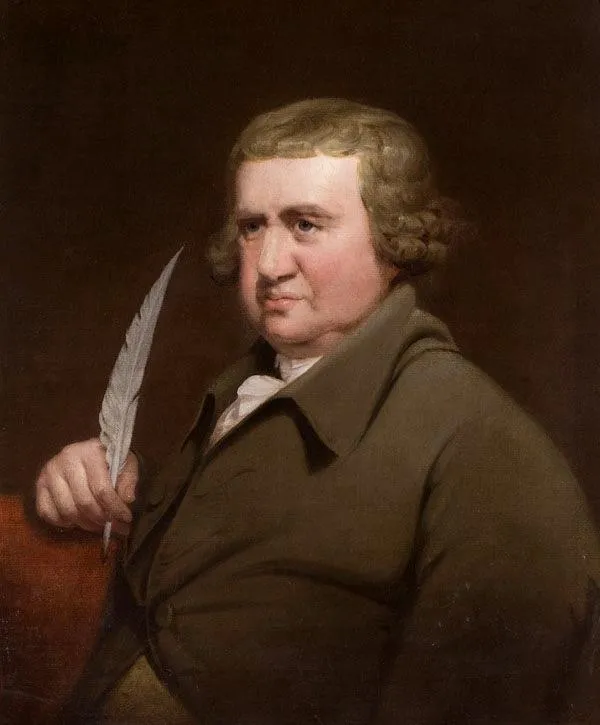Charles Darwin’s Grandfather Was Famous for His Poems About Plant Sex
Erasmus Darwin’s poetics influenced his grandson’s vision of nature
/https://tf-cmsv2-smithsonianmag-media.s3.amazonaws.com/filer/6e/05/6e055b42-9745-4456-8b29-0174f21f3bfc/schlumbergera_04_ies.jpg)
Today, the name “Darwin” only conjures one person: Charles Darwin, the 1800s English naturalist famed for writing On the Origin of Species and for contributing to our understanding of evolution. But in England about a hundred years earlier, another Darwin was just as famous: Erasmus Darwin, whose poetic visions of evolution can be seen in his grandson’s theories.
Darwin, born on this day in 1731, was trained as a physician. His activities, however, stretched far beyond a doctor’s craft. “A radical campaigner for equality, he condemned slavery, supported female education and opposed convention Christian ideas on creation,” writes Patricia Fara for the Oxford University Press blog. He was active during a period known as the Enlightenment, when his contemporaries like Karl Marx, Jean-Jacques Rousseau and Mary Wollstonecraft were all working to understand how the universe worked using tools that ranged from the scientific to the poetic.
Not to be outdone by these better-remembered figures, Darwin joined right in, writing long poems on gardens, technology and evolution as a way of communicating his views, Fara writes. “The father of fourteen children by two wives and his son’s governess, he envisaged a cosmos fuelled by sexual energy and dominated by a perpetual struggle between the powers of good and evil,“ she writes. Within that cosmos, he believed that life had all evolved from a shared source.

His poetry got popular in the last decade of his life, starting with The Loves of Plants in 1789. It’s about what it sounds like about: plant sex, but with the flowery erotic prose of an era that gave us Fanny Hill: Memoirs of a Woman of Pleasure. Take this poem about an anthropomorphized representation of the truffle (fungi are not technically plants, but Darwin grouped them together):
With eager step the boiling surf she braves,
And meets her refluent lover in the waves;
Loose o'er the flood her azure mantle swims,
And the clear stream betrays her snowy limbs.
So on her sea-girt tower fair HERO stood
At parting day, and mark'd the dashing flood;
While high in air, the glimmering rocks above,
Shone the bright lamp, the pilot-star of Love.
--With robe outspread the wavering flame behind
She kneels, and guards it from the shifting wind;
Breathes to her Goddess all her vows, and guides
Her bold LEANDER o'er the dusky tides;
Wrings his wet hair, his briny bosom warms,
And clasps her panting lover in her arms.
Deep, in wide caverns and their shadowy ailes,
Daughter of Earth, the chaste TRUFFELIA smiles;
However, writes scholar Alan Richardson, beneath the colorful language and euphemistic verse lay real science–at least for its time. Darwin’s The Loves of Plants and subsequent 1790s works, both in poetry and prose, reflected an intense interest in the natural world.
In the 1790s, Richardson writes, scientists wrote in the popular language of the time. “They wrote, moreover, about matters of wide intellectual and popular interest,” he writes, meaning that their ideas were accessible to their contemporaries in other fields: “Their revisionary views on the natural world, the human body, the nervous system and the mind” were available to anyone of their class, he writes, which helped create an intellectual atmosphere of complete social and scientific revolution.
In this climate, Darwin published another book–this one mostly prose–in 1794. Zoonomia; or the Laws of Organic Life. It contained theories about how life evolved guided by a “spirit of animation.” “His theory seemed to deny creationist accounts of the Earth, to erode the crucial distinction between human beings and other animals, and to expend with the human soul in equating mind with the brain and nervous system,” Richardson writes. Darwin’s theories were viewed as dangerously political–and theories of evolution would remain so well past his grandson’s time.